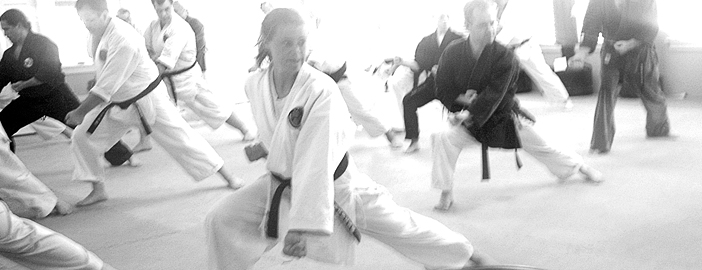Principles
Winston Churchill had principles. The difference between him and most of us is that he stuck to his principles at all costs. He didn’t waver when they weren’t popular – an extreme rarity in politics. When England entered WWII Churchill knew that by themselves, England could not defeat Germany. But his mindset of “I’ll probably end up in the hospital, but I swear to Christ you’ll be laying next to me” and his Never Say Die attitude made him one of the most influential people in history.
We all have principles. Some are more outlined than others, and though you may not be able to list them off the top of your head, you have them. Our dojo has a set of principles as well. These principles are what we consider our “Unbreakables” and what help define our black belts:
1) You must have a great reverse punch. Kenpo is the ‘fist way’ and we should consider this as the most important technique. I believe our core curriculum is broad and includes many variations of hands and feet. However, the shelf life of kicking is somewhat limited. Sensei Stan Mattson told me, “The hands will never leave you.” I continue to believe it to be true.
2) You must be excellent at kata. If you are excellent at kata, so will your basics be. Kata is uniquely identified with the martial arts and often misunderstood. Many believe that practicing kata will not make you a better fighter (nothing new here; that argument has been around for many years). ALL of the martial arts master instructors practiced kata and considered it essential to development as a warrior. In fact, ‘sparring’ is a 20th century innovation made possible by using kendo equipment. Bunkai and Kata were the only tools available for combat training.
I would agree that practicing a single aspect of the martial arts – in a vacuum – is not enhancing your fighting skills. However, we have more than one dimension for training: bag work, basics, kata, self-defense, sparring. They all add up and provide opportunities for development of basics and application of those basics. You must do it all. “I should see your best karate in the forms. Full power, full speed.” ~ Roger Greene
3) You must have good inside fighting. ‘Sense motion. Close. Control the center line.’ is my approach for combat training. We are much better off stepping inside someone’s range and staying there. Looking at the Hawaiian Kempo self-defense sets, they are all designed for moving close –either closing on the outside or closing on the inside. Incorporating our Jujitsu has added more options for us. Sensei Mattson told me Professor Chow and Sensei Alo always included the grappling as part of the striking movements.
4) You must have an understanding of the principles and concepts of movement. We are students of the martial arts. Practical application is coupled with theoretical knowledge. It is important to understand why things work, when to use specific techniques, and how to apply our physical capabilities to our advantage. Strategy is first, tactical approach is second, and the ability to deliver techniques is third.
5) You must be willing to “go”! No paper tigers. It’s not about winning – it’s about courage. Every soldier facing combat must face the fact that they may not be the victor in every encounter. Yet they train as much as possible, maintain mental focus during practice, develop the mental attitude of a warrior, AND GO TO COMBAT! “Courage is being scared to death – but saddling up anyway.” ~ John Wayne
Finally, some believe that a warrior is one who always wins – never accepts defeat – is quick to respond to conflict. I think there is some truth to that viewpoint, but only some. For me, a warrior represents meekness (strength under control). They are the quietest one in the room and reluctant to be drawn into any confrontation. But when faced with a moral imperative to protect the weak, a loved one or themselves, they will step up and put everything on the line. That’s courage. Fighting is the very last resort; avoiding conflict is always the first response.
Identify what principles you have that guide your life through both tough times and when things couldn’t be any better. They shouldn’t change, and at your core neither should you.
By Hanshi Dan B. Kennedy and Kyoshi Mike Colahan




Leave a Reply
Want to join the discussion?Feel free to contribute!